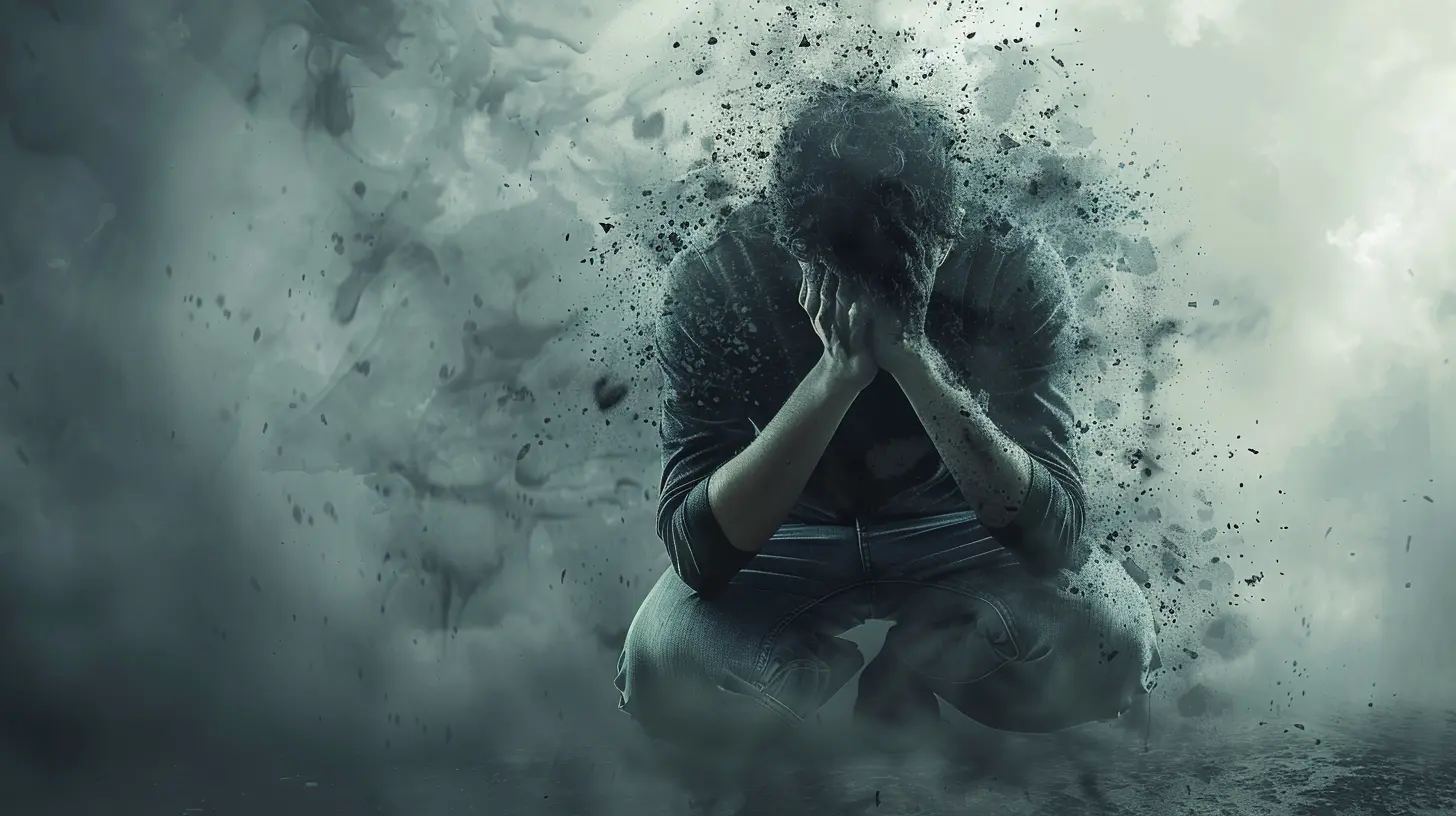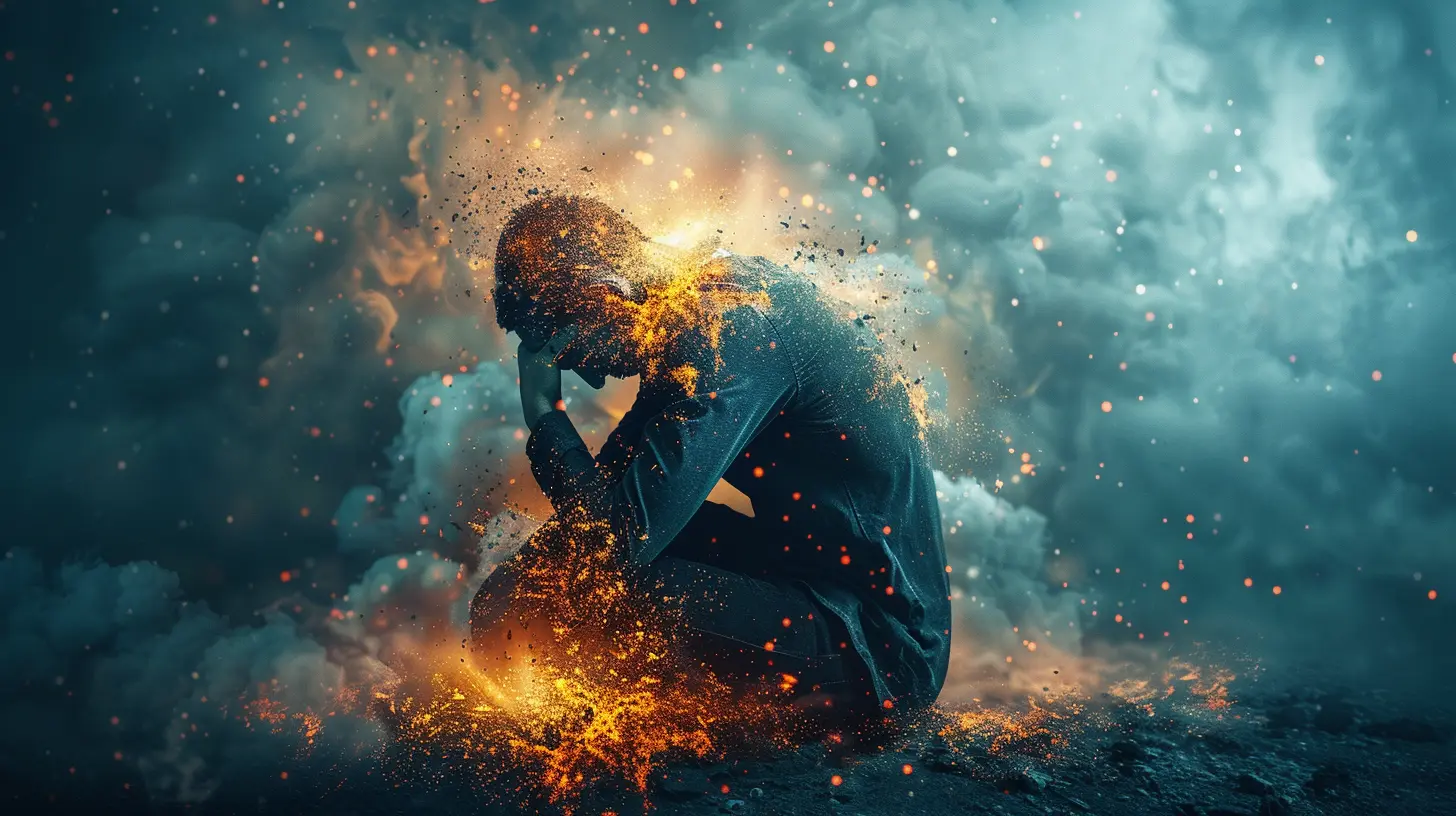How PTSD Erodes Self-Esteem and Ways to Rebuild It
10 August 2025
Post-Traumatic Stress Disorder (PTSD) is more than just a mental health label—it’s a deeply personal struggle that leaves lasting emotional scars. One often-overlooked piece of the PTSD puzzle? The way it chips away at your self-esteem, leaving you feeling like a shadow of your old self. It’s like trying to stand tall on quicksand—you’re constantly sinking.
If you’ve been dealing with PTSD, or love someone who is, you’ve probably seen this firsthand. So let’s break it down together: how PTSD erodes self-esteem, and more importantly, how you can begin to rebuild it brick by brick.
What Exactly Is PTSD?
First things first—PTSD is a mental health condition that can develop after experiencing or witnessing a traumatic event. Car accidents, natural disasters, war, abuse—you name it. These events aren't just things you "get over." They shake your entire sense of safety and identity.Symptoms of PTSD often include:
- Flashbacks or intrusive memories
- Avoidance of reminders of the trauma
- Negative changes in thoughts and mood
- Hyperarousal (feeling constantly on edge)
What people don’t talk about enough, though, is the inner turmoil—the quiet war PTSD wages on your self-worth.
How PTSD Erodes Self-Esteem
Let’s get real here. PTSD doesn’t just cause anxiety or nightmares—it impacts how you see yourself. And it does it slowly, like a leaky faucet dripping on your confidence day and night.1. Internalized Guilt and Shame
After a traumatic event, many people wrestle with guilt—asking themselves questions like:- “Why didn’t I stop it?”
- “Why didn’t I do something different?”
- “What’s wrong with me?”
That guilt often morphs into shame. And unlike guilt (which says “I did something bad”), shame whispers, “I am bad.” It’s this internalized belief that you’re broken, weak, or somehow at fault. That hits self-esteem like a wrecking ball.
2. The “I’m Not Good Enough” Mental Loop
PTSD has a vicious way of replaying painful moments in your head. This constant loop of distress reinforces beliefs like “I’m not strong enough” or “I’ll never be okay.” Over time, you begin to accept these thoughts as facts, and boom—your self-esteem takes hit after hit.3. Social Withdrawal
When struggling with PTSD, it's common to shut people out. Maybe you're afraid they won’t understand, or maybe even being around others feels overwhelming. The downside? Loneliness magnifies feelings of worthlessness. And the less connection you have, the harder it is to feel seen, valued, or understood.4. Emotional Numbness
A lot of people with PTSD feel emotionally flat—like they’ve lost the ability to feel joy, love, or even sadness. This emotional numbness can create a sense of disconnection from yourself. If you don’t feel like you anymore, it’s hard to value who you are.5. Struggles with Trust
PTSD damages your ability to trust—not just others, but also yourself. You start to question your judgment, your reactions, even your memories. That self-doubt seeps into your self-esteem, convincing you that you can’t even rely on your own mind.
The Connection Between Trauma and Identity
Your identity is shaped by your past experiences, beliefs, and how you view yourself in the world. When trauma storms in, it can rewrite the entire script. Before the trauma, you might’ve seen yourself as strong, capable, caring. But afterward? You might feel damaged, helpless, even unlovable.And here’s the kicker: PTSD doesn’t just change how you see the world—it changes how you see yourself. That identity shift is at the root of the self-esteem struggles so many trauma survivors face.
Why Rebuilding Self-Esteem Matters
Without healthy self-esteem, everything feels harder. Relationships? Strained. Career confidence? Shaky. Daily motivation? Practically nonexistent. Think of self-esteem as the foundation of your emotional house—if it’s cracked, everything else feels unstable.The good news? Just like a house can be renovated, your self-esteem can be rebuilt—even if it feels impossible right now.
10 Ways To Rebuild Self-Esteem After PTSD
Let’s dive into some practical, down-to-earth strategies that actually help.1. Give Yourself Permission to Heal
First off, let’s bust a myth: healing isn’t linear. You don’t wake up one day and poof your confidence is back. Give yourself permission to take baby steps. Celebrate small wins. Forgive setbacks. This is a marathon, not a sprint.2. Rewrite the Inner Narrative
That inner critic? Let’s silence it. Start noticing your self-talk. Are your thoughts kind, or critical? When a negative thought creeps in (e.g. “I’m worthless”), challenge it with a more balanced one (e.g. “I’m doing my best, and that matters”).Truth bomb: You are not your trauma.
3. Practice Self-Compassion
Imagine if your best friend had PTSD—wouldn’t you show them love, patience, and grace? So why not offer the same to yourself? Self-compassion means treating yourself like a human, not a machine. Sleep when you’re tired. Cry when you need to. Rest when things get heavy.4. Reconnect with Your “Before Self”
You’re not the same person you were before the trauma—but that’s not always a bad thing. Still, it can help to reconnect with parts of your old self that brought joy, meaning, or strength. What hobbies did you love? What values mattered most to you? Start there.5. Set Tiny, Achievable Goals
Here’s a secret: Confidence grows when you prove to yourself that you can follow through. Start with micro-goals—like getting out of bed by 9 AM, or taking a 10-minute walk. Each one you meet is a brick in your self-esteem wall.6. Get Professional Support
Therapists that specialize in trauma (like EMDR or cognitive-behavioral therapy for PTSD) can work wonders. They help you unlearn the harmful messages trauma embedded in your mind—and teach you how to build healthier ones.No shame in needing help. In fact, asking for it is a sign of strength.
7. Surround Yourself with Supportive People
Healing isn’t a solo mission. Find people who lift you up—not those who drain you. Whether it’s a close friend, a support group, or even an online community, connection is crucial. Sometimes just being seen and heard is enough to spark self-worth.8. Practice Gratitude and Mindfulness
Sounds a bit cliché, right? But research shows that gratitude boosts self-esteem. Each day, jot down three things that went right—even if they’re tiny. Pair that with mindfulness to reconnect with your body and emotions in the present moment. It brings you back to you.9. Reflect on Your Strength
You’ve survived something unimaginable. That alone proves that you are strong, resilient, and brave. Keep a “strengths journal” to remind yourself of every challenge you’ve faced and overcome. It’s like a highlight reel of your inner power.10. Redefine Yourself on Your Own Terms
At the end of the day, you get to decide who you are. Not your trauma. Not your past. Not the people who hurt you.Who do you want to be moving forward? What qualities do you admire in yourself? Start shaping that new identity—one that honors your pain but isn’t defined by it.
Real Talk: Healing Takes Time
Let’s not sugarcoat it—rebuilding self-esteem after PTSD is hard work. Some days will feel heavy. Others, hopeful. But every step you take is proof that healing is possible.So if you're reading this and nodding along, feeling seen, maybe even a little teary-eyed—you’re not alone. And you're not broken.
You’re a survivor. You're strong. And you’re absolutely worthy of love, peace, and a future you feel proud of.
Final Thoughts
PTSD might have shaken your world, but it doesn’t get to rob you of your worth. Self-esteem isn’t something you’re born with or without—it’s something you build. And with patience, support, and tools that actually work, you can create a version of yourself that feels whole again.Because here’s the truth no one tells you loudly enough:
You are still here.
You still matter.
And healing? It’s already begun.
all images in this post were generated using AI tools
Category:
Post Traumatic Stress DisorderAuthor:

Janet Conrad
Discussion
rate this article
1 comments
Candace McCabe
Thank you for this insightful article. It highlights the profound impact of PTSD on self-esteem and offers valuable strategies for healing. Your guidance on rebuilding self-worth is both compassionate and empowering. Truly appreciated!
August 28, 2025 at 3:33 PM

Janet Conrad
Thank you for your kind words! I'm glad you found the article helpful and empowering. Your feedback means a lot!


